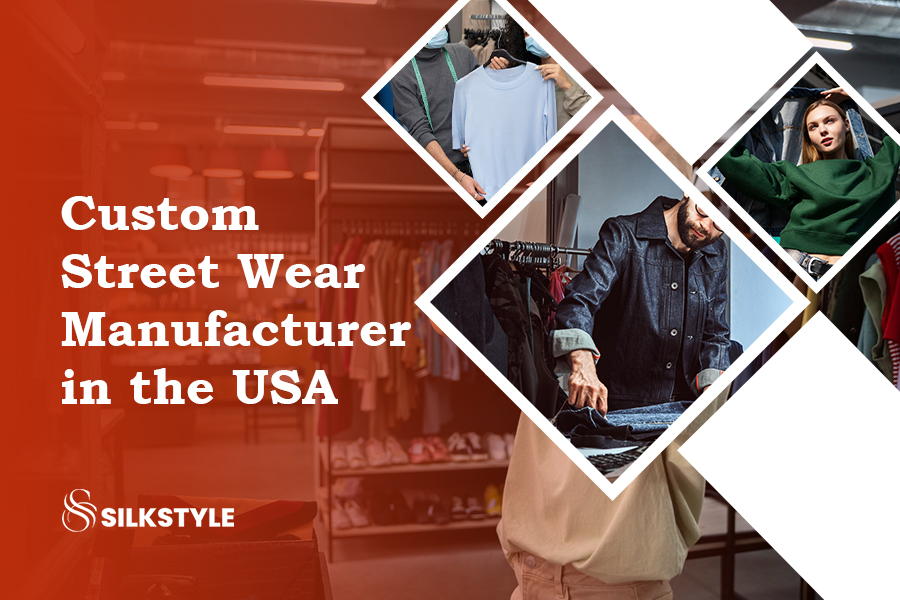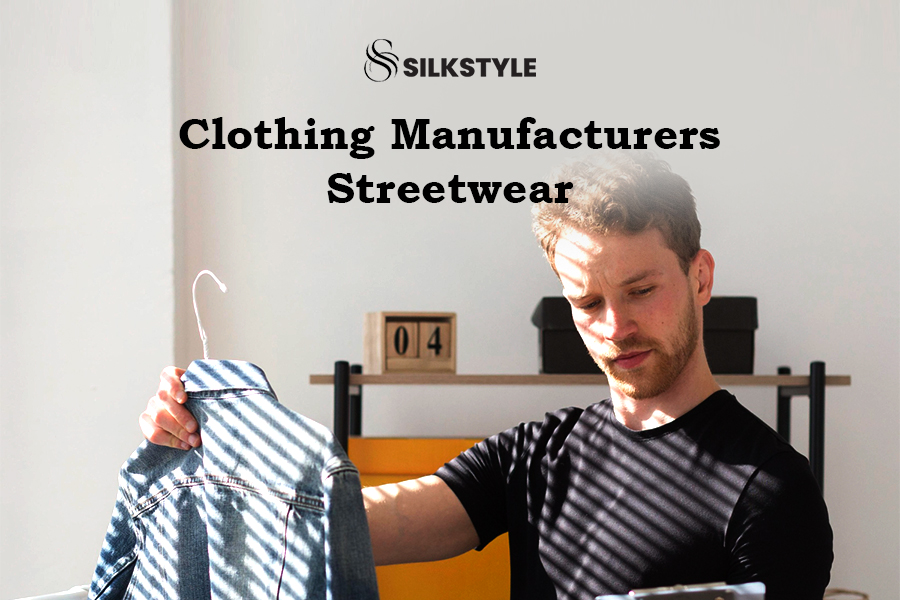Streetwear has spread globally to become a ubiquitous phenomenon that pervades fashion, music, and culture. For businesses looking to enter the industry or complete missing lines in the market, perhaps one of the most significant questions will be: How expensive is it to partner with a custom streetwear clothing manufacturer?
The reality is the prices will be hugely different based on where you are, the complexity of your designs, how many, and what type of custom streetwear producer you work with. Knowing these factors will enable you to budget and select the correct supplier to work with for your company.
Why Use a Custom Streetwear Manufacturer?
Before we talk about pricing, let’s grasp why brands look for custom clothing manufacturers streetwear rather than relying on traditional suppliers.
- Brand Identity – Streetwear is all about uniqueness. Custom manufacturing enables you to produce one-of-a-kind items that are an exact representation of your concept, not plain blanks sitting on the rack.
- Quality Control – Quality streetwear manufacturers provide even stitching, printing, and application of fabric.
- Scalability – Whether it’s from a start 50 hoodies or growing to 5,000, the correct manufacturer will grow to accommodate your business.
- End-to-End Services – Big full-service manufacturers usually have end-to-end services, like fabric sourcing, pattern making, sampling, mass production, and even packaging at times.
The Key Cost Factors
What costs to produce with a custom street wear manufacturer in the USA or abroad rely on numerous variables. Let’s dissect them:
1. Minimum Order Quantities (MOQs)
Most companies have a minimum order quantity of units you need to order per design. With streetwear, MOQs usually range between 50 to 300 units per design.
- Small MOQs: Best for new businesses testing designs, but more expensive per unit.
- Large MOQs: Cheaper per unit, but take up more initial capital and storage.
2. Material and Fabric Options
Streetwear uses heavyweight cotton, fleece, denim, or technical fabric. Material costs affect price in a linear way.
- Cotton tee: $4–$8 per unit (production alone).
- Heavyweight hoodie: $12–$20 per unit, depending on thickness and finish.
- Premium materials (organic cotton, technical blends): higher cost but stronger brand positioning.
3. Customization and Printing
Customization is where streetwear excels, but at a cost.
- Screen Printing: $1–$5 per application, depending on colors.
- Embroidery: $3–$10 depending on size and stitch density.
- Special Finishes (appliqué, puff prints, patches): extra $2–$8 per unit.
4. Sampling
Most clothing manufacturers streetwear need to do sample runs before mass production. Samples are 2–4 times the bulk production’s unit price since they involve setup time on one piece.
5. Labor and Location
With a local custom streetwear manufacturer based in the USA, orders will tend to be more expensive than offshore since they will have higher labor charges.
- USA production: More costly per-unit fee, but faster turnaround and improved communication.
- Offshore production (Asia, Europe): Lower per-unit fee but longer lead times and potential import tariffs.
6. Packaging and Labeling
Personalized tags, woven labels, or branded packaging are added to the end cost, too. Allow an additional $0.50–$3 per piece.
7. Shipping and Duties
When importing internationally, don’t forget to include freight charges, customs fees, and taxes. These can quickly cut into your landed cost per unit.
Average Cost Breakdown
This is what you can budget with custom streetwear garment manufacturers:
- Minimum T-Shirts: $7–$15 per unit (customization, labels, and packaging included).
- Hoodies / Sweatshirts: $15–$30 per unit.
- Cargo Pants / Joggers: $18–$35 per unit.
- Jackets / Outerwear: $30–$60 per unit.
These are approximations. Your price will rely on your order quantity, material options, and supplier.
How to Keep Your Costs Under Control
While bespoke production might appear expensive, it’s easy to budget:
- Start Small, Scale Later – Start small collections to test the waters first before purchasing bulk.
- Optimize Your Designs – Reduce the number of print points or embroidery pieces in order to save on costs.
- Select Fabrics Wisely – A good mid-range fabric can provide a better cost-value ratio than working with limited top-line only fabric.
- Collaborate with Open-Book Producers – The best quality streetwear custom producers offer you open-book quotes of fees so you know exactly what you’re actually paying for.
- Prepare in Advance – Spontaneous alterations and rush orders are expensive. Prepare your drops weeks and months ahead of time.
Most brands consider whether to work with USA-based custom streetwear clothing manufacturers or outsource offshore. Here’s a comparison:
- USA-Based: It is essentially more costly per unit but cheaper in shipping, thus, faster timelines, and almost no language or cultural barriers. It is preferable for premium brands that employ the “Made in USA” tag.
- Overseas: Lower per-unit cost, wider fabric variety, and mass production capacity. However, consider longer shipping times and import duties.
Your choice will depend on whether speed, cost, or positioning is your number one priority.
Hidden Costs to Be Aware Of
All top first-time brands are shocked by costs aside from manufacturing. They include:
- Fees for sampling
- Courier or freight forwarder charges
- Customs duties and taxes
- Storage or warehouse charges on bulk orders
- Revisions or remakes in case of quality issues
Always ask for the total breakdown of cost before committing.
Working with a custom street wear manufacturer is an investment in brand identity and quality. The range of production cost is huge: $7 T-shirts to $60 for jackets. Ultimately, one pays for reliability, scalability, and craftsmanship.
By understanding what moves the price—MOQs, material, customization, and geography—you can set real budgets and have a partner that gets your vision. When you go to a made-to-order streetwear factory in the USA or even overseas, most notably, you must care about value, not price.
Streetwear is about authenticity and connectivity. If you have a great manufacturing partner, you can preserve both of them, which keeps your brand vital.



